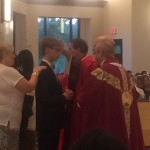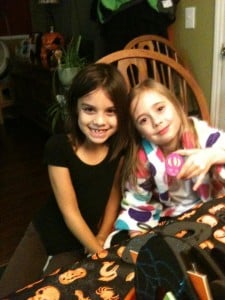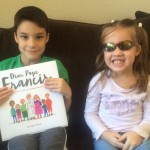(Yes, I’m bringing back Homeschool Mondays! I needed a hiatus, but I’m ready to hit the ground running with them again. As always, if there’s a homeschooling topic you’d like to see me tackle, please let me know!)
History is one of those subjects that can be hard…mostly because it’s booooooringggg. Every year, I listen to the complaints and mutterings about ‘how does this have anything to do with me’ and ‘this was all so long ago that the people are all dead.’ I’ve decided that my children are right. It’s hard to take an interest in something, even when you use the best materials, if you can’t see how it applies to yourself. That makes history,and its tales of long dead people hard for kids who are 8-14ish to relate to.
I love history, and have been fascinated with the lives of those-who-lived-long-ago for as long as I can remember. It was never dead to me, but a living tapestry of stories and scandals. Just because something happened 500 years ago doesn’t make it any less interesting….right?….who’s with me?!? ….. Not a single one of my children.They sigh and roll their eyes and do the minimum required to make me leave them alone.
I asked my 12 year old, and he asked me why he should care. “You keep saying that these people did all this stuff, but who are they to me? They’re just dead now.”
And that got me thinking. Who are they to him? Why should he care?
I turned that over and over for a few weeks before I remembered that we did our geneology a couple of
years ago and traced my mother’s family back to France in 1290. That’s a long time ago, and there’s a ton of history between then and now. Last week, I started talking to them over dinner of this long lost relative, and they all just feigned interest. I could see that even though he had a familiar last name, they weren’t able to connect the dots between there and now.
This week I started over. I pulled out pictures of their grandparents and started talking about the Vietnam War. Both of their grandfathers were in the Navy during that conflict, and my children perked up. They began asking questions about these familiar, albeit much younger, faces. We talked about hippies who protested the war, and the treatment soldiers faced when they got back home. We’ve been discussing it for most of today. Tomorrow, we’re going to hit on the school desegregation which happened while they were still students, and then go back to the invention of television (my dad’s family had one of the first sets in town), and the widespread use of indoor plumbing (my mom can still remember when that became a reality for her family.) We’re creating scrapbook pages of fashion, music, big news stories, what their houses looked like, and anything else we think might be important in telling their stories.
Next week, we’ll move back to their Great-Grandparents. One of mine drove a tank across Europe, and one of my husband’s flew bombing missions over Germany. ( Their Oma’s family was in Germany at the time, so we get both sides of the story.) The other grandparents were busy keeping the country fed, and one of my grandmothers was building war planes. From there it’s the Great Depression and the Dust Bowl, the popularity of movies (the invention of talkies!), and Women’s Suffrage.
We’re going to keep moving back in time from one relative to another, learning about them and the world in which they lived. We’re not going to be talking about long dead people who are nothing to us, but grandpa’s grandfather’s grandpa who fought in the Revolutionary War under General Washington. Hopefully when we get to that point, those brave men will be more than just names – they’ll be a link in the chain that leads to us and now. They’ll be a part of the story of our family, and through them we’ll learn about the history of America (the first relative was in Jamestown long before the Pilgrims got to Plymouth), and eventually Western Civilization.
Our folks were there for a lot of the big stuff, and even when they weren’t it affected their lives. The history in the books made the lives of the people-who-lead-to-us either easier or more difficult. The Plague didn’t just wipe out people in Europe, it killed our ancestors’ children. Joan of Arc didn’t just point out and defend the King of France, but one of our people was a member of his court – he saw her and heard her tell of the power of God.
That’s what we’re doing. We’re ditching the books in favor of The History of Us. We’re writing the books ourselves, starting here and working our way back. The kids are excited to begin, and I’m itching to go with them. Why don’t you join us? Let’s turn the boring history thing on its head by starting now and showing how it all leads up to here.











